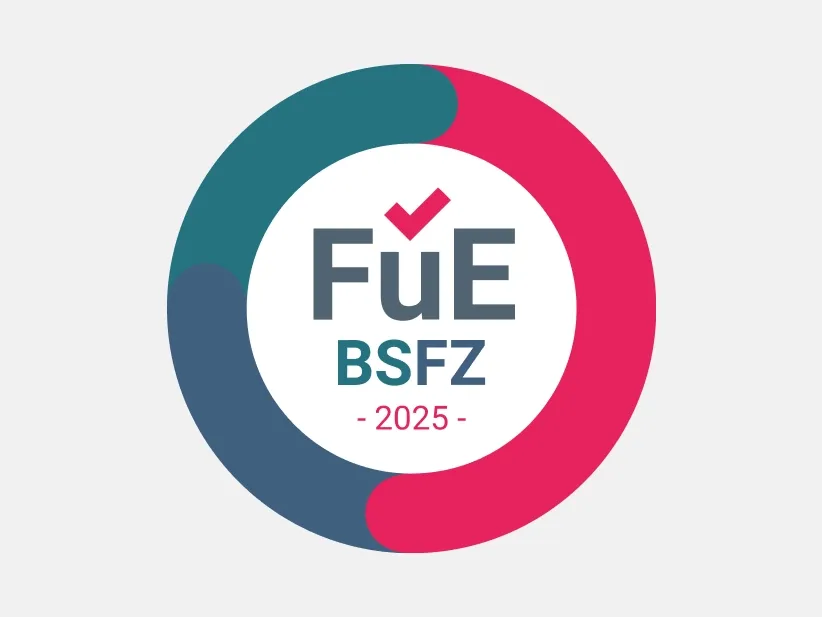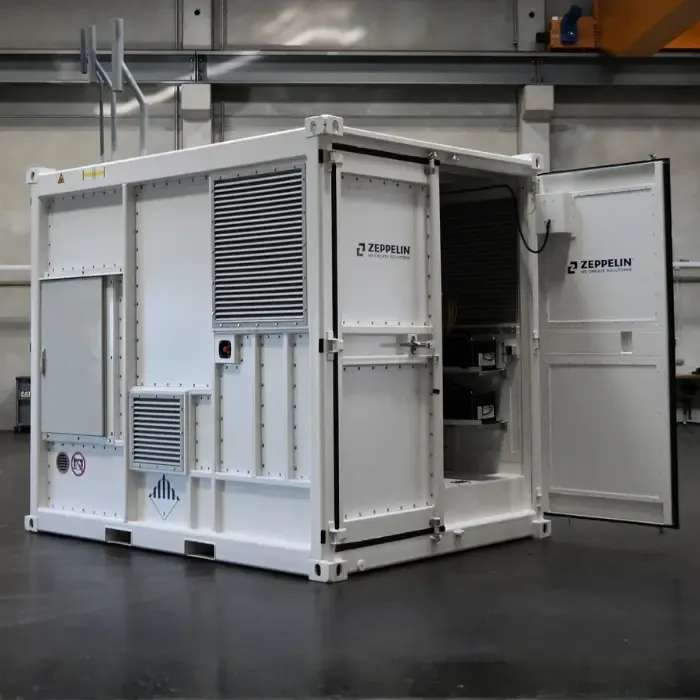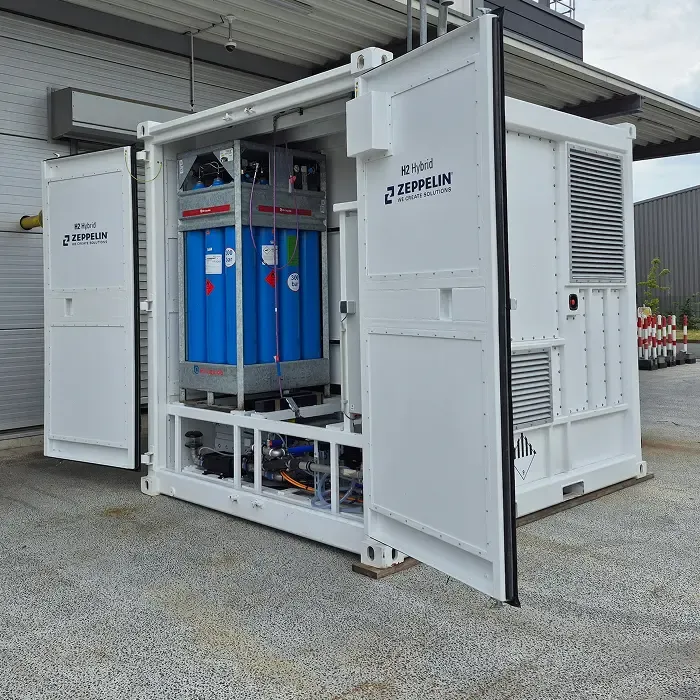Fuel Cell Technology for Emission-Free Rail Mobility
Sustainable Rail Transport with Hydrogen Solutions for Trains
The rail industry is under increasing pressure to reduce emissions and establish sustainable propulsion solutions – especially on non-electrified routes, in sensitive urban environments, or for temporary construction site operations. Hydrogen-based fuel cell systems are considered a promising key technology: they generate electrical power without CO₂ emissions, particulate matter, or nitrogen oxides—quietly, efficiently, and reliably.
With our PEM fuel cell systems, Zeppelin Power Systems offers a forward-looking alternative to diesel-based power units – ideal for mainline and shunting locomotives, track maintenance machines, or a reliable onboard power supply. These systems can be flexibly integrated into new or existing vehicle concepts—either as a standalone solution or as part of a hybrid propulsion architecture.
Zeppelin Power Systems is actively investing in the further development and real-world testing of this technology to implement economically viable and sustainable zero-emission energy solutions for rail transport. From system evaluation and technical design to commissioning and service, we support operators, vehicle manufacturers, and infrastructure companies on the path to a CO₂-free future in rail mobility.
Available for you 24/7
Germany
International
Discover Our Emission-Free Power and Propulsion Solutions with Fuel Cells
Key benefits for your organization
Collaborative Technology Development
We support you in implementing fuel cell technology in the rail sector – from the initial needs assessment to pilot-based field trials. Working closely with you, we develop system approaches that align technical feasibility with environmental goals.
Vendor-Independent Systems for Rail Applications
For railway use cases, we develop scalable and flexible fuel cell systems—whether as modular propulsion units, power supplies for special-purpose vehicles, or containerized solutions for rail infrastructure projects. We combine independently certified components into efficient overall systems—perfectly tailored to vehicle architecture, route conditions, and operational requirements.
Application-Based Simulation and System Design
Every rail application has its own set of requirements. We analyze real-world driving and load profiles of locomotives, track maintenance machines, or onboard power systems and simulate suitable PEM fuel cell system concepts—focusing on energy demand, operational behavior, and system architecture.
Field Testing – Test Systems and Pilot Projects
Through pilot projects and customized test systems, we enable real-world testing of our fuel cell technology—for example, in shunting operations, on branch lines, or in stationary applications. These deployments provide valuable operational data for further development and optimization.
Economic Evaluation: Total Cost of Ownership Analysis
New technologies must do more than perform—they must also be cost-effective. That’s why we evaluate capital expenditures (CAPEX), operating costs (OPEX), maintenance requirements, and potential savings. This enables well-founded decisions for future-oriented investments.

BSFZ Seal for Our Fuel Cell Development
Zeppelin Power Systems has been awarded the BSFZ Seal in recognition of its research and development activities in the field of fuel cell technology. The seal is granted exclusively to companies conducting in-house research and development in accordance with the German Research Allowance Act (FZulG) – a mark of our innovative strength and our commitment to a sustainable energy future.
Fuel Cell Expertise from Zeppelin Power Systems
Zeppelin Power Systems supports railway operators, vehicle manufacturers, and fleet owners with comprehensive technical expertise – from feasibility studies and system testing to full integration into rail vehicles. Together, we are shaping the transition to clean and efficient rail mobility.
Planning
- Consulting
- Concept Development
- Project Engineering
Engineering
- Electrical & Installation Planning
- Process Technology
- CAD-based Planning
Project Management
- Site Management
- Technical Procurement
- Quality Assurance
Plant Construction
- Electrical Installation
- Assembly
- Commissioning and Test Run
Service
- Maintenance
- Routine Servicing
- Troubleshooting Service
Fuel Cell Technology for a Sustainable Transformation in Rail Mobility
The rail industry faces the pressing task of significantly reducing emissions and actively transitioning to alternative propulsion technologies. Especially on non-electrified routes, in urban shunting operations, or in applications with high energy demands, hydrogen is emerging as an increasingly important energy carrier. Proton Exchange Membrane (PEM) fuel cell systems offer an emission-free, quiet, and scalable solution in this context.
PEM fuel cells convert hydrogen into electrical energy through an electrochemical process, without CO₂ emissions, particulate matter, or nitrogen oxides. They are suitable for powering mainline and shunting locomotives, track maintenance equipment, and onboard power systems. Thanks to their modular design, these systems can be flexibly integrated into both new and existing vehicle concepts—either as the sole energy source or as part of a hybrid propulsion architecture.
PEM Fuel Cells in Rail Applications
PEM fuel cell technology is characterized by high power density and dynamic load response, making it ideal for the variable performance demands of rail operations. Key features include:
- Operating temperature of 60–80 °C for rapid system startup and high responsiveness
- High power density
- Dynamic load adaptation – suitable for start-stop operation and variable load profiles
- Scalability – from single units to modular multi-stack systems in the megawatt range
Operation requires ultra-pure hydrogen (99.999%). The only by-products are water and small amounts of heat—clear advantages for use in emission-sensitive or noise-restricted environments.
System Integration in Rail Applications: Components and Requirements
A fuel cell system for rail is far more than just the stack. It is a complex integration of multiple technical subsystems that must be individually tailored to the specific vehicle type and application:
- Hydrogen storage: High-pressure tanks, pressure regulation, and valve technology compliant with rail standards
- Air supply: Compressors, filters, and control units to ensure reliable oxygen supply
- Cooling and thermal management: Precise thermal control for efficient and long-lasting operation
- Power electronics: Converters for integration into vehicle power grids or onboard systems
- Safety and diagnostics systems: Monitoring for hydrogen leakage, pressure, and temperature – including redundancies and compliance with railway safety standards
Integration poses high demands on space, weight, certification, and system compatibility – especially in retrofitting existing vehicles. Zeppelin Power Systems collaborates with partners from industry and research to develop practical, rail-ready solutions.
Research, Development, and Pilot Projects in Rail
Zeppelin Power Systems is actively engaged in the advancement and real-world testing of fuel cell technology for the railway sector. Key areas of focus include:
- Reliability and lifespan: Testing under real-world operating conditions and optimization of maintenance intervals
- System efficiency: Analysis and optimization of system interaction with other energy and propulsion technologies, including energy management strategies
- Cost and scalability: Development of modular platforms for economically viable implementation in small and large fleet applications
- Safety and standards compliance: Ongoing development of digital monitoring, diagnostic, and protection systems in line with railway-specific regulations
Zeppelin Power Systems Portfolio

